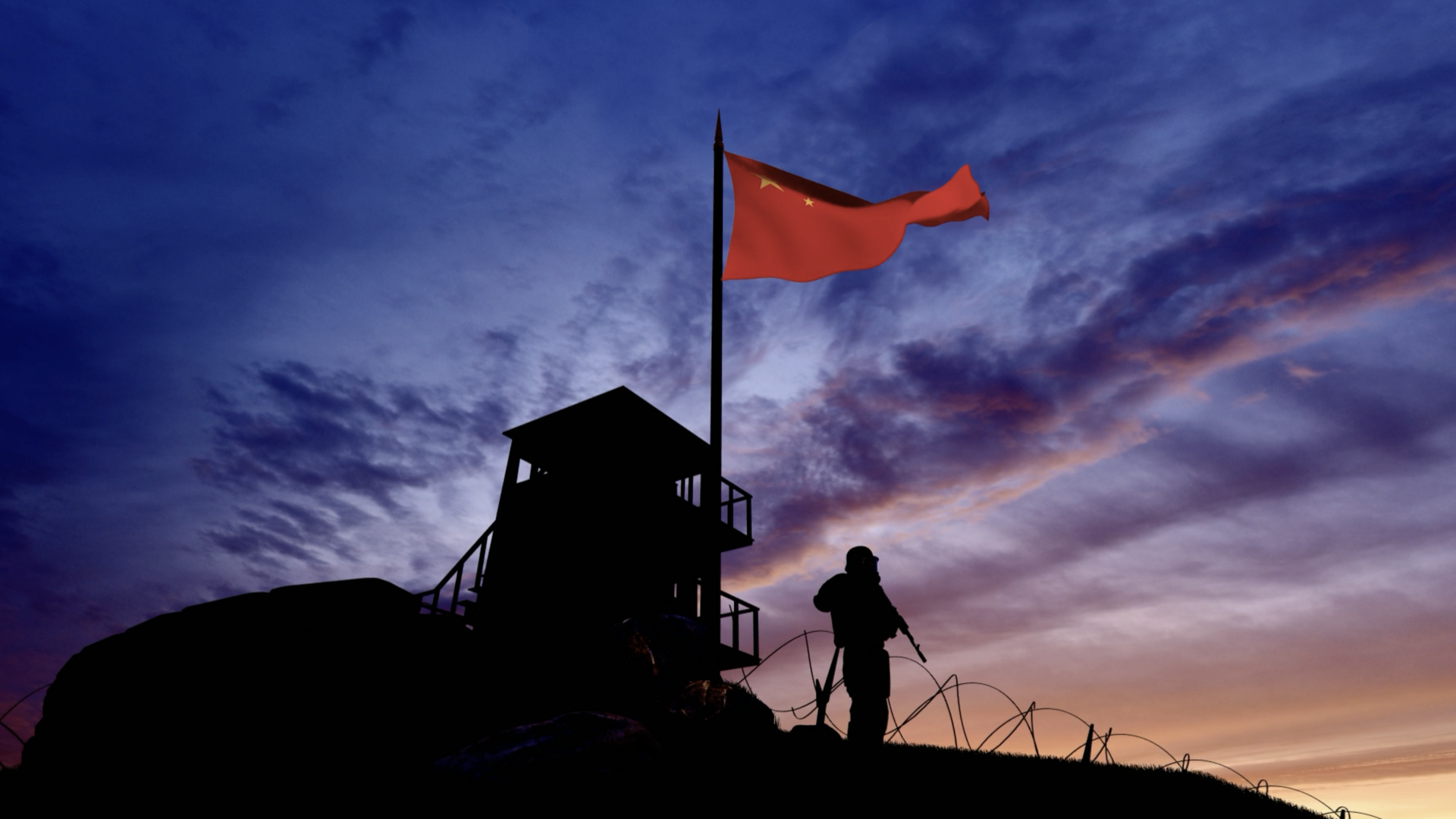In a landmark defense deal announced on September 15, the United States is going to supply Australia with eight nuclear-powered submarines. Washington had previously shared its nuclear-submarine technology only with the United Kingdom, which co-founded the three-way alliance with the U.S. and Australia—known as AUKUS—presented by the three countries’ leaders in a virtual address. The security partnership also includes cooperation in cybersecurity, artificial intelligence, and quantum computing. But the pact has provoked outrage in France, as Australia withdrew from a contract to purchase 12 diesel-powered subs from Paris, and French officials first heard about the breakup through media reports. France recalled its ambassadors to Washington and Canberra, the first time France had withdrawn its U.S. ambassador since 1778, when the countries established diplomatic relations—in a deal negotiated by Benjamin Franklin. The spat complicates U.S. President Joe Biden’s repeated pledges to repair alliances frayed by the Trump presidency, even as Biden strengthens ties with two other longtime allies. So why upset such a close partner now?
According to Jonathan Tepperman—the author of The Fix: How Countries Use Crises to Solve the World’s Worst Problems and former editor in chief of Foreign Policy—the answer is China. The strategic goal of the coalition is to thwart China’s efforts to control the seas of the Indo-Pacific region, Tepperman says. In his view, Australia had long worked to maintain friendly relations with Beijing, but the new treaty reveals that Australia has chosen to openly side with the United States in confronting it. As Tepperman sees it, the People’s Republic has become increasingly belligerent under President Xi Jinping, and Australia’s move is only the latest sign of China’s deteriorating relations with neighboring and nearby countries.
Michael Bluhm: What’s the significance of the AUKUS deal?
Jonathan Tepperman: It’s important as much for the symbolism as the substance. It represents a major sign that another country, which has been trying to balance its friendship with the United States and its relationship with China, has decided that the balancing act is impossible. It is going to cast its lot with the United States, even at the risk of profoundly alienating China.
Will the eight nuclear-powered submarines and these other measures make a strategic difference? Possibly—especially the submarines, because they add to the U.S.-aligned boats that will be patrolling the South China Sea and will make it harder for China to intimidate—let alone take military action against—its neighbors.
The greatest significance is the symbolism and the fact that Australia was willing to break with its long attempts to appease China. That’s a sign of just how bad China’s relations with other Asia-Pacific countries are getting.
Bluhm: You talked about efforts in the region to balance between the U.S. and China. What does the deal say about U.S. strategy on China?
Tepperman: The problem with discussions of grand strategy is that they tend to oversimplify messy reality, which is how policy often gets made. Yes, there is a big grand-strategic component, but it started with Australia’s attempt to get out of a bad deal. Australia signed this multi-billion-dollar contract with France to supply diesel-powered submarines. It didn’t take long before Australia realized that this wasn’t such a great deal. It was extremely expensive. The project quickly ran late and over budget.

By the time the Biden administration came in, Australia was already looking to get out of the deal and approached the Biden administration early on and said, We have this problem. We have this deal with the French that we really need to get out of, because by the time these diesel-powered submarines finally get delivered, they would be woefully out of date.
Diesel-powered subs are not very useful, because they’re easy for the Chinese to detect, and they have to surface about every day or so. A nuclear-powered submarine is only limited by the need to come up for food for the crew.
As much as anything strategic, the Australians just needed to get out of this bad, dumb deal that they had signed with the French.
Having said all that, this definitely represents another serious iteration in the development of an anti-China strategy by the United States. It’s a big blow to China. It makes the pivot real. Until now, there hasn’t been much substance to the U.S. “pivot to Asia” that was first announced by the Obama administration and later renamed as a “rebalancing.”
The greatest significance is the symbolism and the fact that Australia was willing to break with its long attempts to appease China. That’s a sign of just how bad China’s relations with other Asia-Pacific countries are getting.
In material terms, there wasn’t much to it other than 2,500 U.S. troops stationed in Australia some time ago. This is much more serious. It will get harder when the subs are finally delivered in 2040—which is a long time away—for China to intimidate its neighbors, especially Australia, but also Taiwan, since these subs could be used to disrupt a Chinese invasion.
And it smartly exploits a known Chinese material weakness: The Chinese are good at a lot of things militarily, but they’re not very good at anti-sub warfare. If Australia and the United States can get the subs in the waters before China has had a chance to catch up in its anti-sub capabilities—and this is why the 2040 delivery date is a big problem, because there’s a lot China can do to catch up in those 19 years—it could make a big difference.
There’s the symbolic significance that Australia, a significant Asia-Pacific power which—like so many of China’s neighbors—has been trying to balance its relationship with China and its relationship with the West, has more firmly put its lot with the West.
For the United States, it represents yet another click in ratcheting up its anti-China campaign, which has taken all sorts of different forms, including the Quad [the Quadrilateral Security Dialogue with India, Japan, and Australia].

Bluhm: What is the Biden administration’s approach to China?
Tepperman: It’s going to be very tough. The Biden administration has been much more aggressive in its approach to China than I and a lot of people expected. Biden was a pragmatist and dealmaker as a senator, not an ideologue or a cold warrior. I didn’t expect them to come out swinging against China the way that they did, especially given the reality that no one can afford to have a purely contentious relationship with China. The United States and the West need to be able to cooperate with Beijing on all sorts of global issues, starting with climate change. A relationship that’s purely combative will make that extremely difficult.
Despite all of that, the administration has been much more confrontational in its approach than any of it would have suggested. It started with the first China-U.S. meeting of the administration, in which [National Security Advisor] Jake Sullivan and [Secretary of State] Tony Blinken went out of their way to publicly criticize the Chinese.
It’s taken concrete and rhetorical forms, in many of which Biden has maintained these very confrontational Trump policies. Trade is the biggest example. Biden has declined to reduce any of the trade barriers that Trump put in place. The Biden administration has put lots of emphasis on the Quad. The administration has been tough on cyber. And now, with the AUKUS, it’s taking the form of a new, strategic, fairly explicitly anti-China alliance.
This does definitely represent another serious iteration in the development of an anti-China strategy by the United States. This is a big blow to China. It makes the pivot real. Until now, there hasn’t been much substance to the U.S. “pivot to Asia” that was first announced by the Obama administration and then got renamed as a “rebalancing.”
Bluhm: How are China’s relations with countries in the Indo-Pacific?
Tepperman: Those relationships are in really bad shape. The country most instrumental in making this deal happen was not the United States, Australia, the U.K., or France—it was China. I’m surprised by how aggressive the United States has been toward China, but I’m much more surprised by how aggressive China has been toward the United States—and even more so toward all its neighbors.
That aggressiveness has had the effect of chasing one country after another into Washington’s arms. China has been so bluntly aggressive toward the countries on its periphery that one after another has decided that its only way to ensure its own security is to get as close to the United States as possible.
This was not necessary. For many years under China’s previous leaders Hu Jintao and Jiang Zemin, China was very careful about not taking the kind of bold and assertive steps that would scare its neighbors or other Asian countries. It had an explicit policy ever since Deng Xiaoping—one that was reiterated deliberately by Hu Jintao—of growing in a way that did not come at the expense of other countries.
Xi Jinping came into office and abandoned all that. Why, nobody knows. I’ve yet to read a complete explanation, because China’s so hard to report on. I think the answer has a lot to do with Xi’s evaluation of the United States’ strategic position following the Great Recession and after the pandemic. His understanding was that the United States had weakened and no longer represented much of an adversary to worry about.

But that still doesn’t explain why China chose to be so tough toward all its neighbors. I can’t see any way that the results—all these neighbors doing everything they can to strengthen their alliances with the United States—could possibly serve China’s interests.
Bluhm: What does the AUKUS security pact reveal about the Biden administration’s foreign policy?
Tepperman: Everybody’s been looking for this since the beginning of the administration. Whenever a new president takes office, there’s always this race to be the first person to define the new president’s foreign-policy doctrine.
If you listen to the rhetoric of the Biden administration, it’s all about democracy promotion and human rights. But much of the emphasis does seem to be on building an anti-China alliance. The real underlying thread, if you can find one, is domestic policy. The key to appreciating that is the administration’s talk about foreign policy for the middle class.
Every U.S. administration’s foreign policy is always ultimately about domestic policy, but it’s striking how much that’s the case here. Delivering on domestic policy is the only thread that ties these disparate elements together. That explains why the Biden team—which did not come in looking like cold warriors, neocons, or ideologues—has been so tough on China and so ideological on China—speaking of building a coalition of democracies against it and of democracies versus autocracies. It explains why the Biden administration has been so strict in maintaining all the Trump administration’s trade sanctions on China.
The country most instrumental in making this deal happen was not the United States, Australia, the U.K., or France—it was China. I’m surprised by how aggressive the United States has been toward China, but I’m much more surprised by how aggressive China has been toward the United States—and even more so toward all its neighbors.
The administration wants to be able to argue domestically that no one has been tougher on addressing the concerns of American voters, which are primarily centered around the economy. Insofar as their concerns include foreign policy, they are worried about this perception that China has taken advantage of the United States and that it’s badly damaged the U.S. economy.
Bluhm: Biden has said that one of his main goals in foreign policy is to repair the alliances that were either completely disrupted or weakened under Trump. So then why upset France like this?
Tepperman: It’s a good question. This is another screw-up by the Biden administration. This whole move was badly executed. The excuse offered by the Biden team is that this is Australia’s fault—the Australians promised the Americans that they would take care of France. It was on the Australians to notify the French that they were backing out of the deal.
But, given that this ended up creating a big short-term problem for the United States, it was on the Biden administration to ensure that this kind of dustup didn’t happen. They failed to do that. Why they failed is hard to understand, just as some of their significant mistakes on the execution of the withdrawal from Afghanistan are hard to understand.
Maybe they think that this is all going to be temporary and it’s not going to substantially affect U.S.-French relations in a way that hurts U.S. interests. That’s probably right.

The French reaction is both theater and real. There’s no question in my mind that the French overreacted. The fact that Paris withdrew its ambassador from Washington for the first time in 250 years is pretty extreme, given some of the low points in the relationship. They didn’t do it over the Iraq War in 2003—and they’re going to do it because of this deal? That’s a bit ridiculous, especially given what the French were put through by the Trump administration.
But the French have legitimate grievances. They should not have found out about this through public reporting.
It’s going to strengthen Macron’s sense that the United States is perhaps not as reliable an ally as it once was and that France’s future should not rest with NATO, but with an independent, European, and European-only security arrangement, which France has been pushing for some time. The problem is that nobody in Europe—starting with Germany—is interested in that.
What is this going to mean, at the end of the day? Not very much. France is going to discover fairly quickly that it just doesn’t have any other options, so I don’t think this is going to result in a realignment or anything else from the French.
Bluhm: You mentioned the poor execution of the withdrawal in Afghanistan. The U.K. complained about inadequate consultation then, much as France is doing now. That contrasts with the stated agenda of the Biden administration to renew and strengthen key partnerships, which Biden repeated on Tuesday at the UN General Assembly. How serious is the Biden administration about creating an alliance of democracies? Or is this just rhetorical cover while keeping the same old relationships with Saudi Arabia and other nondemocratic allies?
The administration wants to be able to argue domestically that no one has been tougher on addressing the concerns of American voters, which are primarily centered around the economy. Insofar as their concerns include foreign policy, they are worried about this perception that China has taken advantage of the United States and that it’s badly damaged the U.S. economy.
Tepperman: The Biden administration’s talk about this new, grand coalition of democracies is largely rhetorical. The administration hasn’t done much on it. People close to them have said, That’s because we have so many other domestic priorities. This is more like a year-two priority. That may be the case, but I don’t know if it was ever a priority, because they have so many domestic issues that they need to address.
It’s also because U.S. foreign policy is messy, complicated, and very rarely amenable to casting in clear ideological terms—especially today, when there is no ideological adversary on the level of the Soviet Union. China, in many ways, represents a greater material threat than the Soviets did. But there’s no Chinese idea that China is trying to export—or that would appeal to anyone in the way that there was something behind what the Soviet Union was trying to sell.
Meanwhile, the United States has other priorities like maintaining stability in the Gulf, which requires it to work with nondemocratic countries and will force it to continue doing so.
There’s also this major intellectual problem with the idea of an alliance of democracies: There are all sorts of countries that are now very difficult to categorize as either autocracies or democracies. They maintain a lot of the trappings of democracies—holding regular elections, having some separation of powers, some limited or purely notional checks and balances.

Those countries include some key U.S. allies, like Turkey, India, Brazil. Is the United States going to declare that those countries aren’t democracies and therefore not part of this new alliance? Or is it going to include them as democracies? If it does, then it’s really undermining or hollowing out what it means when it talks about democracies and democracies sticking together. If you can be an Indian-style or a Turkish-style “democracy” and still be included, then it’s not really clear what that label “democratic” actually means.
Bluhm: What about Australia’s perspective on the deal? They’re only the second country that’s going to get this nuclear-propulsion technology, and they’re getting out of a bad deal with France. This deal seems good for them.
Tepperman: As is always the case in international relations, every country worked toward its own interests. Yes, the Australians got a lot out of the deal. As you said, they got out of this very problematic arrangement with the French; they became just the second country to get this extremely powerful technology for nuclear submarines; and they’ve strengthened their hand significantly against China.
But the United States also got a lot out of the deal by strengthening its own alliance system and its attempt to balance against China. The country that may have gotten the most out of this deal, at least symbolically, is the U.K. Boris Johnson is desperate to put some substance to this post-Brexit vision of a global Britain. The U.K. is no longer much of a significant military power, yet it’s somehow been included in this new alliance—and it gets to stick it to the French. As much as this blowup may be a problem for Washington, it’s something that Boris—who is always more interested in symbolism than substance—can trumpet as a great, symbolic British victory over the perfidious French.

